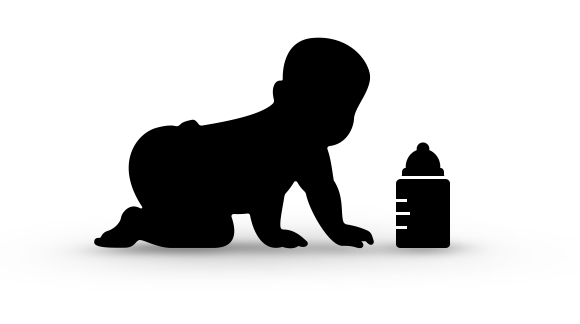The following is from The Vaccine Reaction.
On June 8, 2023, the U.S. Food and Drug Administration’s (FDA) Antimicrobial Drugs Advisory Committee (AMDAC) voted unanimously (21-0) in favor of AstraZeneca and Sanofi’s new nirsevimab (Beyfortus) monoclonal antibody drug believed to provide protection for infants from respiratory syncytial virus (RSV) disease and other lower respiratory tract infections during their first year of life.
The path to pharmaceutical RSV protection spans several decades, with clinical trials for an RSV vaccine ending abruptly in the 1960s after the shot unexpectedly sickened and hospitalized 80 percent of children in the trial.
The inactivated virus used in the shot exacerbated the disease once trial participants caught RSV naturally, leading to two children’s deaths and researchers going back to the drawing board.
Today, more than 60 years later, 12 infants have died during clinical trials of the new nirsevimab, two from “unknown causes” thought to be linked to sudden infant death syndrome (SIDS).
Infant Deaths Attributed to Underlying Disease Despite Clinical Trials Requiring Healthy Participants
The other 10 infant deaths were attributed to “underlying disease.” However, according to Pfizer, clinical trials typically include healthy participants to assess the safety of the drug and any side effects, and only certain types of trials—such as those for oncology—would warrant the inclusion of sick patients versus healthy people.
Before joining a clinical trial, according to the U.S. National Institutes of Health (NIH), participants must be given informed consent, as well as any information that allows the research team to determine whether or not they can participate in the study safely.
As for the other 10 children’s deaths—attributed to a number of varying causes such as cardiac disease, a tumor, Covid, a skull fracture, pneumonia, two from gastroenteritis, and two from unknown causes—FDA official Melissa Baylor, MD said none of the deaths appeared to be related to the experimental drug nirsevimab.
SIDS and the Importance of Black Box Warnings on Drugs
By definition, SIDS is an unexpected and unexplainable death that occurs in a “seemingly normal, healthy infant under one year of age.”
In fact, nine out of 10 deaths in the study occurred around the two- and four-month mark, when well-baby visits to the pediatrician commonly precede the administration of multiple vaccines, such as the combined DTaP (diphtheria, tetanus and acellular pertussis) in one visit, according to the U.S. Centers for Disease Control and Prevention’s (CDC) Immunization Schedule.
Many drugs, including some routine childhood vaccinations for newborns, contain black box warnings on the manufacturer’s product inserts.
A black box warning, the highest safety-related warning intended to alert the consumer to major risks of the drug, stamps the insert of any drug where trial participants died during clinical studies.
Still, more often than not, as with the clinical trials of nirsevimab, the diagnosis of SIDS often overrules the occurrence of a potentially lethal drug reaction as the cause of death in an otherwise healthy infant.
The FDA is slated to make a final decision on nirsevimab later this year.
To date, the agency maintains it has not identified any safety concerns in its review of the drug.
Read full article here.

The Lemonade Mermaid Store
Unique gifts for Land or Sea Mermaids, Mer-pets and Little Mermaids!
Left: Pastel Beach Necklace $16




at 13 or more deaths the red flag would have been warranted, but as it stands, “nuthin’ to see here” …
This simple study is pretty convincing of the SIDS link to vaccines
https://blogs.bmj.com/bmj/2012/12/21/jacob-puliyel-on-the-pentavalent-study-in-kerala/